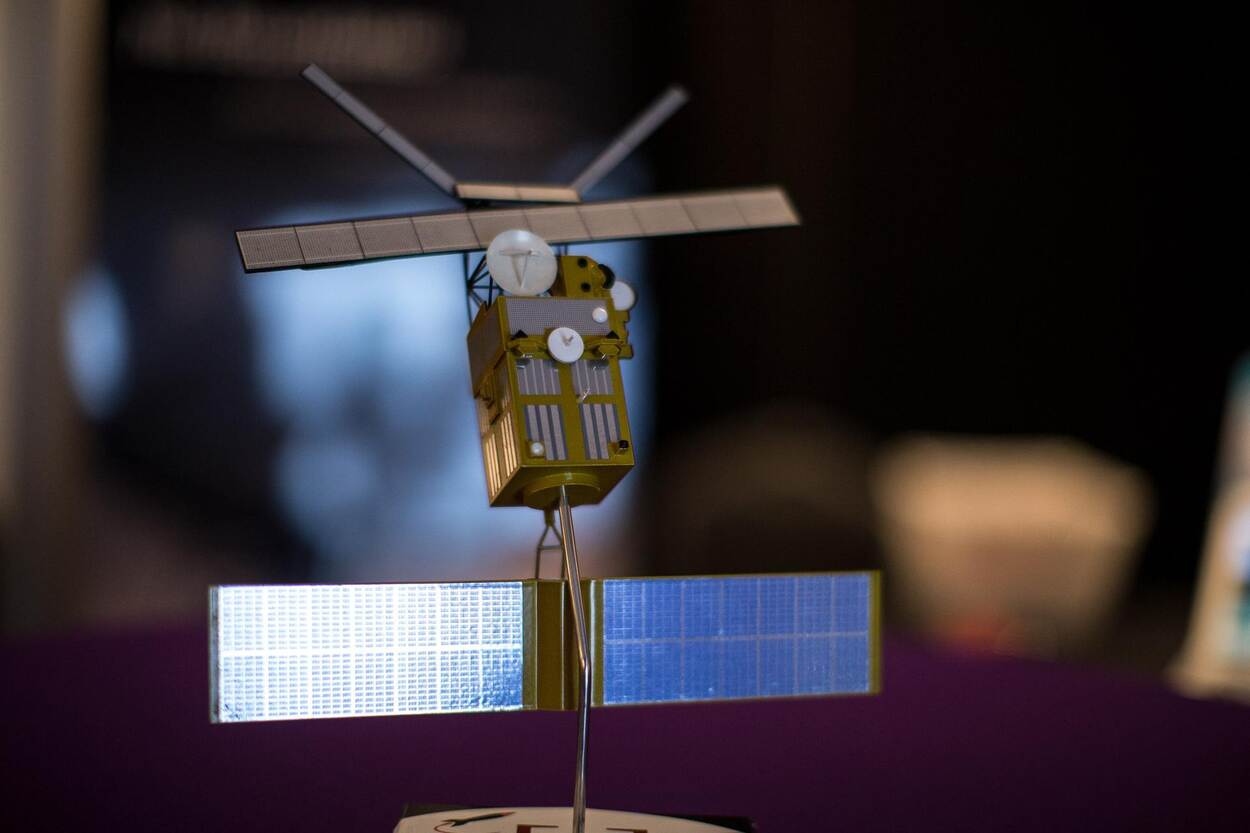When Finland
cleared the last hurdle for NATO membership last week, major Western newspapers buried the story. Yet Foreign Minister Pekka Haavisto justly celebrated ‘
these historic days’—the end of 75 years of
neutrality. As of this week, Finland is
formally in, and Sweden, another eternal neutral, will
soon follow, once Turkey stops
blocking its membership.
Why would these two countries throng into an alliance that French President Emmanuel Macron diagnosed as being ‘brain dead’ only four years ago, and which former US President Donald Trump saw as ‘
obsolete’ in 2017? The wisdom of the 18th-century British wit Samuel Johnson offers a
broad answer here: ‘When a man knows he is to be hanged in a fortnight, it concentrates his mind wonderfully.’
But there is an even pithier answer to this question: Vladimir Putin. The man who would be king of Europe has given NATO a new brain and a new lease on life.
What an irony! One of Putin’s many pretexts for subduing Ukraine was to stop NATO enlargement once and for all. Instead, by pushing two neutral Nordic countries into the alliance, he has achieved the opposite. NATO, now, has not been in better health for decades.
Yet Putin doesn’t deserve all the credit. NATO was never as sclerotic as Macron and Trump presumed. It is the oldest alliance of free countries, and longevity bespeaks functionality. In past centuries, royals changed coalitions more often than their wigs. As Lord Palmerston famously said, ‘We have no eternal allies, and we have no perpetual enemies.’
NATO is unique in the annals of nation-states. When Napoleon was beaten for good, the coalition arrayed against him was history. NATO, by contrast, was never a temporary marriage of convenience that would fall apart after victory or defeat. Its forces are integrated under a
supreme commander and benefit from hardware compatibility, common communications and constant training. Such synergies make it costly to renationalise defence, and no member has ever defected.
And the alliance keeps growing. It started with
12 states in 1949. Greece, Turkey and West Germany joined in the 1950s, followed by Spain in the 1980s, three former Soviet satrapies in 1999, and seven more in 2004. Albania and Croatia were admitted in 2009; then Montenegro joined in 2017 and North Macedonia in 2020. Once Finland and Sweden are in, the original 12 will have expanded to 32. Growth does not imply obsolescence.
The most critical reason for longevity is the United States, which had to overcome its long aversion to what Thomas Jefferson, in his first inaugural address in 1801, called ‘entangling alliances’. In fact, the US didn’t commit to Europe in the early years of World War I or World War II. The turn from self-isolation to permanent alliance with Europe had to await the Cold War, when those ex-isolationists provided Western Europe with that most precious gift: a security umbrella made in the USA,
including more than 350,000 US troops and thousands of tactical nuclear weapons at the peak that kept Stalin’s heirs on their best behaviour.
Moreover, the US acted not only as a protector, but also as a pacifier. With their common security assured, age-old enemies like Britain, France and Germany could safely dispense with arms races and strategic rivalry in favour of trust and community.
This is why the European Defence Community (without the US)
died in the cradle in 1954, why NATO has reached the age of 74, and why a purely European strategic player remains a noble dream—even if the EU plus Britain add up to the world’s second-largest economy (after the US and ahead of China). The US is the not-so-secret ingredient. It spares the Europeans the necessity of mounting a divisive autonomous defence.
Putin’s war of conquest against Ukraine proves the point. When US President Joe Biden committed in earnest after Russia’s full-scale invasion last year, the hesitant Europeans could feel safe enough to engage. With Mr Big there to deter the Kremlin’s nuclearised war machine, would-be mediators like France and Germany have curbed their classic reflexes. Germany abandoned the
Nord Stream 2 gas pipeline from Russia while providing a steady stream of equipment to Ukraine, even Leopard 2 tanks, but only after the US had gone first with its Abrams tanks.
Thus, the ‘brain dead’ alliance has bounced back—nothing like an impending hanging to concentrate the mind. NATO, give or take Hungary or Turkey, has grasped the obvious. The war on its doorsteps is not just about Ukraine, but also about a precious European order that has delegitimised conquest. The stakes could not be higher. As in Stalin’s days, Putin’s lunge has reintroduced the spectre of Russian hegemony over Europe. Putin wants a certified sphere of influence, preferably a back-to-the-future restoration of the old Soviet empire.
If the Ukraine war turns into a blood-drenched stalemate, the voices of accommodation—‘give Putin an offramp’—will grow louder on both sides of the Atlantic, on the left and on the right. Is Europe prepared for its strategic paradigm to shift towards the return of power politics?
Already, Russia’s war of aggression has revealed the price of three decades of European disarmament. The alliance has shrunk not only its munitions stockpiles, but also its arms production lines. High-intensity protracted warfare seemed to have gone the way of the buggy. Yet, whichever way the war goes, it holds a sobering lesson for the West: pile up plenty of gear and ordnance, invest in mobility and train your troops.
‘A conqueror is always a lover of peace,’
taught Clausewitz. They want to move in ‘quite calmly’. Hence, ‘we must prepare for war’ in order to avert it. As the West peers ahead, it should heed the age-old rule: deterrence is better than having to halt aggression. It is also a lot cheaper.
https://www.aspistrategist.org.au/h...CampaignMonitor&utm_term=How Putin saved NATO












